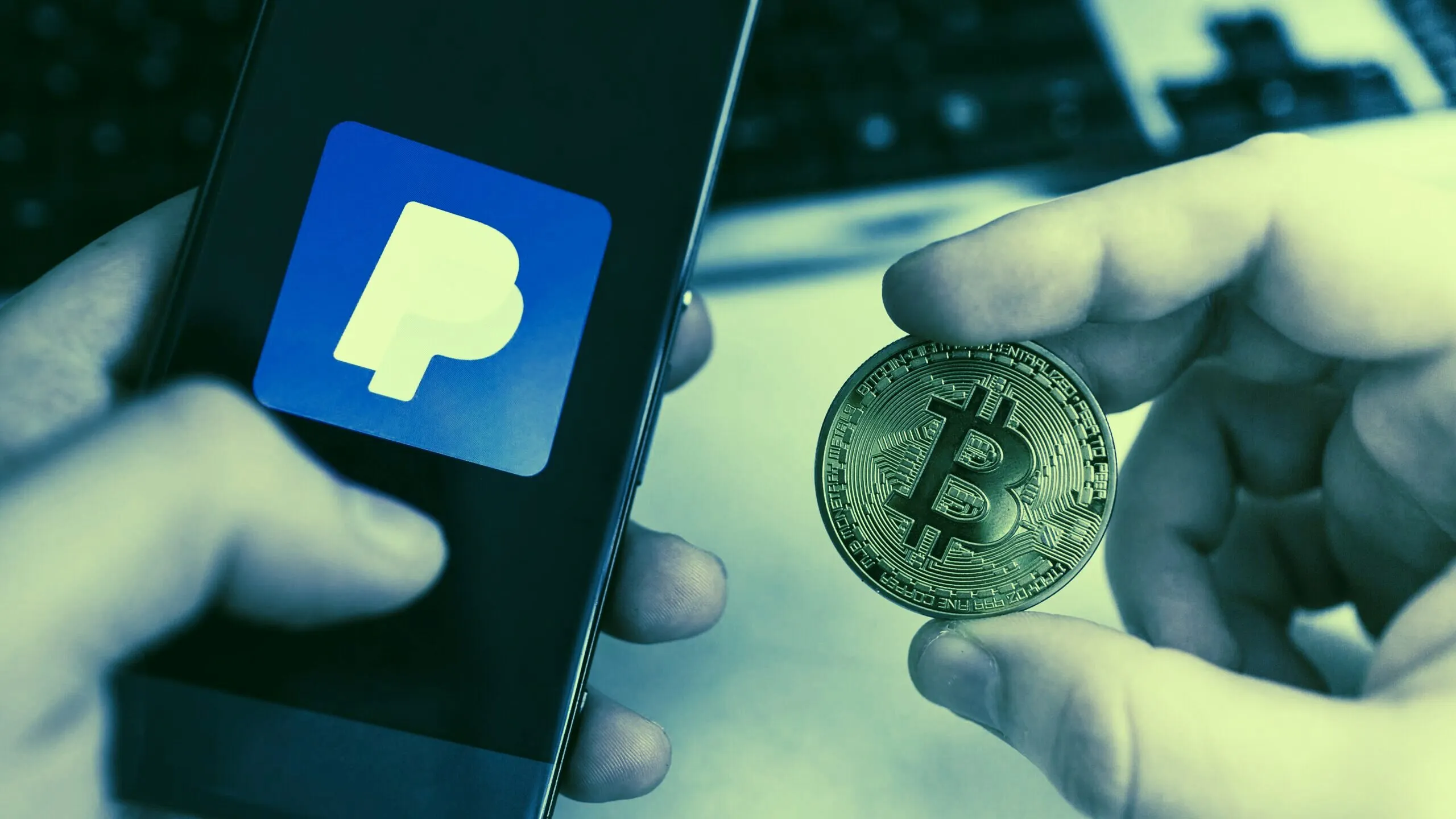In brief
- PayPal's latest acquisition is Curv, which helps banks and others secure their crypto holdings.
- PayPal says it does not plan to use Curv to become a digital custodian for other companies
- The Curv deal is part of PayPal's larger plans to build the next generation of financial services
PayPal announced on Monday it has acquired Curv, a Tel Aviv-based startup that uses a novel form of cryptography to safeguard customers' stashes of Bitcoin and other digital assets. The deal is the latest sign of the payment giant's growing crypto ambitions, and provides clues into PayPal's strategy to capitalize on the fast-changing world of financial technology.
In a press release announcing the Curv deal, PayPal did not disclose financial terms, but a person close to the company told Decrypt it was for nearly $200 million.
The deal is the latest in a spate of recent acquisitions for PayPal, which bought coupon service Honey for $4 billion in late 2019 and small business payments service iZettle for $2.2 billion in 2018.
The Curv deal stands out as the first big crypto acquisition for PayPal, and comes as the company has reported booming demand for its service, launched last November, that lets US consumers buy and sell Bitcoin and a handful of other cryptocurrencies.
Curv is one of a growing number of companies, including Anchorage and BitGo (a company that PayPal explored buying last year), that help banks and others protect their crypto holdings from hackers.
The company is a pioneer in using multi-party computation or MPC to safeguard the holdings. Unlike traditional storage techniques, which typically rely on scattering the key to a digital wallet in various places, MPC relies on mathematics and cloud computing to prevent unauthorized access.
Curv founder Itay Malinger, a veteran of web security giant Akamai, has credited recent breakthroughs in math for making MPC viable for crypto storage, and said Curv's solution offers both total security and easy access to crypto assets.
In an interview with Decrypt, Jose Fernandez da Ponte, VP and General Manager of PayPal's blockchain and digital currency group, said PayPal has been in talks with Curv for nearly a year, and sought to acquire its approximately 40-person team in part due to its technical sophistication. He added that Malinger will stay on at PayPal, but that PayPal is not disclosing specific titles or roles.
Fernandez da Ponte emphasized that PayPal is not acquiring Curv with the goal of running a custody service, which involves charging third parties to safeguard their assets. Instead, he says, PayPal will rely on Curv's technology to provide a security layer for PayPal's own digital assets, and to safely move them across borders.
"Imagine a world in which PayPal has different custody providers, and needs to move assets from one provider to another," he said.
While PayPal's cryptocurrency service is only available in the US, the comment points to how the company is not just planning to expand its retail crypto offerings, but to deploy crypto's underlying technology—blockchain—on a global scale.
PayPal, central banks and the future of finance
PayPal CEO Dan Schulman recently told Decrypt that he views the company's crypto initiatives as part of a broader plan to promote financial inclusion—a sentiment Fernandez da Ponte echoes when describing the Curv acquisition.
But while terms like "financial inclusion" and "democratizing finance" are popular catchphrases among Bitcoin enthusiasts, it's unclear when they will amount to more than feel-good rhetoric. Even in places like Argentina and Venezuela, whose economies have been racked by hyperinflation and government misrule, only a small portion of citizens have turned to Bitcoin—preferring instead to rely on US dollars as a currency haven.
According to Fernandez da Ponte, though, the biggest opportunity for crypto to transform finance lies beyond peer-to-peer consumer transactions. Instead, he points to the potential for merchants—including PayPal's millions of small business clients—to begin enjoying lower transaction costs that could create a cheaper and fairer financial system.
As Schulman has noted, payment transaction costs—the sort charged by banks, credit card networks and others—have remained stubbornly high despite the arrival of a spate of new digital efficiencies. These costs, which are passed onto consumers, are especially stiff for poor consumers and those seeking to move money across borders.
PayPal's vision for financial inclusion, then, appears to be based on building new worldwide payment infrastructure, powered in part by blockchain, that will make it dramatically easier for people and businesses to move money around.
So far, PayPal has been tight-lipped about just which type of blockchain technology it plans to use to build this infrastructure. Fernandez da Ponte did say that any system it adopts will have to be capable of "high throughput" in the form of thousands of transactions per second, and noted that the company has looked at blockchains like Ethereum, Stellar, Algorand and Solana—but emphasized that it is not endorsing any of them for now.
Perhaps most intriguing of all, Fernandez da Ponte said that PayPal's crypto ambitions are closely tied to the speed at which central banks embrace digital currencies.
Currently, many central banks, including the Bank of England, are experimenting with digital versions of their money, while the People's Bank of China is already encouraging its citizens to use a digital yuan. Meanwhile, Mastercard is helping central banks and regulators around the world to create so-called "sandboxes" that will let digital versions of national currencies be used in a controlled fashion.
All of this suggests it's only a matter of time until government-backed digital currencies become part of everyday life. If this comes to pass, PayPal's recent crypto investments could help the company enjoy a key role in supplying the next generation of financial plumbing between merchants and consumers.
Watch PayPal CEO Dan Schulman's full interview with Decrypt from March 4:

